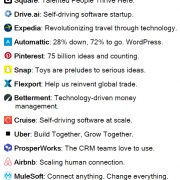Investigation and Lie Detection
“The liar was the hottest to defend his veracity, the coward his courage, the ill-bred his gentlemanliness, and the cad his honor.”
― Margaret Mitchell, Gone with the Wind
There is a great deal of literature available to help determine whether someone you are speaking with, perhaps during an investigation, or during a game of poker, is lying to you. What follows are some of the “tells” the trained eye will look for:
- Eye contact avoidance.
- Liars use less hands and arms. Often on their lap, folded, closed body posture.
- Palms down on the table or clenched.
- Arms and legs crossed.
- Touching face, playing with hair.
- Partial shrug.
- Inconsistent words, gestures, and emotions.
- What was the initial reaction?
- Timing of gestures.
- The surprise wears off quickly.
- The tight smile; the small smile.
- Head moves mechanically.
- The guilty usually go on the defensive; the honest on the offensive.
- The head shifts.
- Slumped posture.
- Liars generally won’t touch you or point fingers.
- Liars feel the need to give a lot of details.
- Liars often repeat the question to gain time.
- Liars use your words.
- The Freudian slip.
- Discomfort with silence.
- The guilty usually engage in body “awayness.” They will put up barriers.
- Guilty people try too hard to convince. “I would never…”, “I wouldn’t lie,” “To tell you the truth…”
- “I need time to think.”
- They look to be relieved that the questioning is over.
- Look for the out of left field response
- They make an effort to change the subject.
- The guilty will engage in moral superiority.
- They will answer the question with a statement first.
When you are hot on the liar’s trail, you can say things like:
- Let them know the advantages of coming clean.
- On a scale of 1-10 where might you fit in …
- What else could you have done?
- Talk about it as if it is already an established fact.
- Stare at them and be silent. Give them a reason to tell the truth.
- Ask them if “this is the whole story?”
- I know this happened… what I want to know is what your intentions were?
- Was this an innocent mistake or a calculated effort?
- Expand their statement.
- I know there are two sides to every story…
Liars feast off of amateurs, which is one reason I don’t play poker, and a good reason for you to hire a pro when dealing with workplace investigations!





